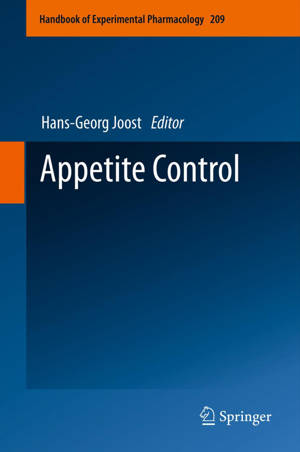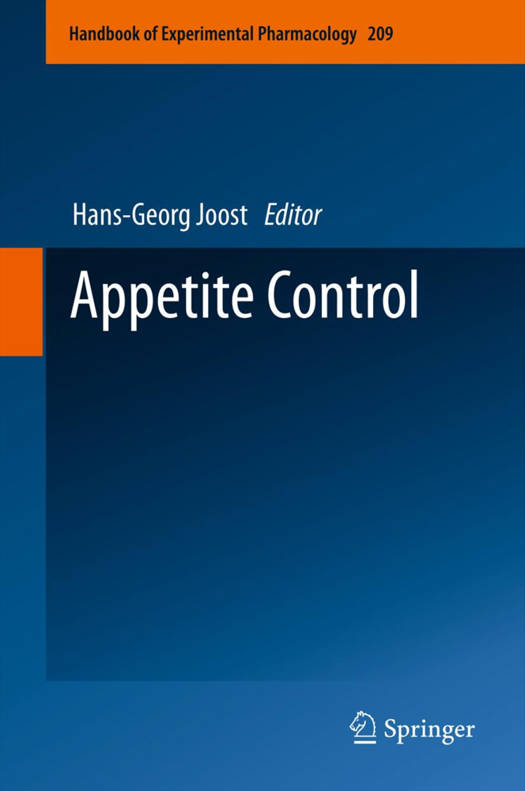
- Retrait gratuit dans votre magasin Club
- 7.000.000 titres dans notre catalogue
- Payer en toute sécurité
- Toujours un magasin près de chez vous
- Retrait gratuit dans votre magasin Club
- 7.000.000 titres dans notre catalogue
- Payer en toute sécurité
- Toujours un magasin près de chez vous
Appetite Control
Description
The volume 'Appetite Control' provides a comprehensive description of the mechanisms controlling food intake, and thereby energy balance, in the mammalian organism. During the last decade, research in this area has produced a remarkable wealth of information and has characterized the function of numerous peptides, transmitters, and receptors in appetite control. Dysfunction of these circuits leads to obesity, a growing health concern. However, the plethora of mechanistic information is in marked contrasts to an almost complete lack of anti-obesity drugs that meet the safety standards required for the chronic therapy of morbid obesity. Consequently, ongoing research aims to identify additional targets and agents for a pharmacological intervention. Thus, the mechanisms of appetite control as well as all agents interfering with its control are of considerable practical interest.
The authors of the volume are distinguished scientists who are leading experts in the field, and who have contributed important, original data to our understanding of the mechanisms of appetite control. They have quite different scientific backgrounds and, together, they represent all relevant disciplines. Thereby, the topics are presented from different points of view, not exclusively from that of pharmacology and neuroendocrinology. Thus, the volume addresses all scientists who are interested in the field of obesity research and the pathophysiology of appetite control.
Spécifications
Parties prenantes
- Editeur:
Contenu
- Nombre de pages :
- 474
- Langue:
- Anglais
- Collection :
- Tome:
- n° 209
Caractéristiques
- EAN:
- 9783642433825
- Date de parution :
- 22-02-14
- Format:
- Livre broché
- Format numérique:
- Trade paperback (VS)
- Dimensions :
- 156 mm x 234 mm
- Poids :
- 675 g






